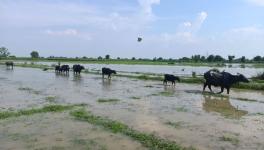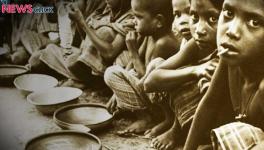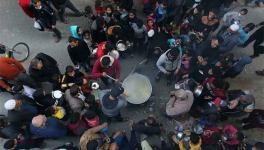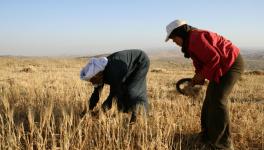The Communist Mafia Won’t Kill You, Mr. Bhagat
Chetan Bhagat is smart indeed.
In his latest piece in the Times of India, he not only introduces his readers to what poverty is (poverty is a terrible thing!), but he also criticizes the Food Security Bill and then uses satire to introduce his 'Food, Fruits, Vegetables, Milk and Nuts' version of the Bill.
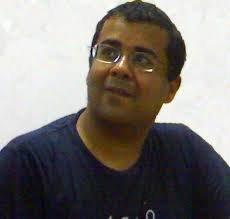
Bhagat also complains about the method of debating in India – attacking the debater rather than the argument. It would have been easy to attack the argument if there were any. But I’ll still try my best.
Yes, Bhagat is right about poverty being a terrible thing. But unlike what he says, the continuance of poverty is not at all surprising because there are so many smart and powerful people who represent the rich. Politicians, market fundamentalists, best-selling authors -- there are so many people trying to help the rich. It is comprehensible, then, why we can't seem to get rid of poverty. Our newspaper columns are virtually controlled by market-leaning IIT graduates, who are some of the most pro-business people on earth. No wonder we seem to be getting nowhere.
Well, we won't. Because while we may not be experts on the stock markets and the devaluation of the rupee, we know exactly where to head when hungry -- McDonalds. Yes, it is over-simplistic, but it is perplexing how little our educated middle-class and debate controllers know about hunger and malnutrition. And for this middle class that has started to read and write novels, it is about feeding its own ego contrary to feeding the poor.

If Bhagat had studied the Food Security Bill and invested time in reading or watching discussions on it, he would have known that “the fashionably left, almost communist, intellectual mafia” is not singing praises of the Bill. His arguments, which sound more like ramblings of a student of Bachelor of Political Science who had been asked to write a class assignment on liberty versus equality, are soaked with enchantment with a world where there are no poor people. He might have tried in his article to distinguish between 'pro-poor and pro-poverty,' but his arguments, if there are any, have actually failed him.
Bhagat also tries to provide potential counter-arguments from the left-inclined to contradict his own arguments, but he should have known that a left-inclined saying “at least a poor mother will see her child sleep peacefully at night on a full stomach” is so 1970s. Today’s left inclined would rather argue on the number of beneficiaries, the role of the PDS, the mechanism of distributing food, or even the Bill’s effect on a possible rise in food prices. The bottomline is that there are provisions in the Food Bill that are debatable, but why is the very idea of providing food at subsidized prices so problematic for him?
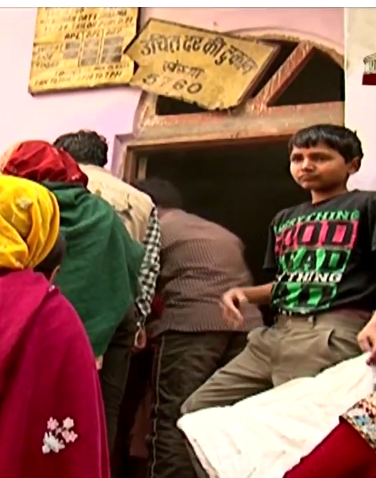
He writes that if you speak against the Bill, “you will be labelled an MNC-favouring, FDI-obsessed capitalist. Stay long enough; you will be branded right-wing, perhaps with a ‘communalist’ slur added too.” But it seems as if for him, anybody supporting the idea of a Food Bill is a left-favouring, Marxism-obsessed communist. Stay long enough; you will be branded left-wing, perhaps with a ‘maoist’ slur added too.
Bhagat complains about how the intellectual’s data-filled presentation will fail in comparison to a picture of a malnourished hungry child in an Indian village. Now that we are talking data, how about 42 percent of Indian children under five years of age being severely or moderately underweight? We don’t need them. They are all our enemies anyway, aren't they? Who cares if half of India’s women are affected by anaemia? After all, they are just vending machines into which you put a “coin” until “coke” falls out.
Like a concerned citizen, he is worried about the increasing fiscal deficit of the country and even about rating agencies downgrading India, and foreign investors changing their minds about investing. It is pretty easy to say, teach a man to fish instead of feeding him one every day, but why provide tax benefits to the big fish and then make false arguments about not having enough money to provide food at subsidised prices to the poor. Among the reasons that actually affect the fiscal deficits is the crores of tax benefits that are given away to corporates every year.
And Mr. Bhagat, we don’t scare the foreigners away by feeding our poor, we scare them away by raping them. We do have good infrastructure, schools and hospitals, but just not for the poor. And contrary to what you say, we don’t really care for poor people. That’s why we don’t have any problem beating up a poor rickshaw-puller in a traffic jam.
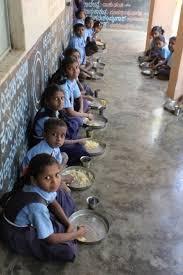
Through his piece, Bhagat is talking to those who are unaffected by hunger and malnutrition; to those who update their status on Facebook about how much they are for the right to speech. But he simply overlooks the fact that the right to food is derived from perhaps the most important right of all – right to life. Bhagat is talking to those who have a problem with watching somebody else being benefited or legally entitled for something as life-saving as food.
Disclaimer:The views expressed here are the author's personal views, and do not necessarily represent the views of Newsclick
Get the latest reports & analysis with people's perspective on Protests, movements & deep analytical videos, discussions of the current affairs in your Telegram app. Subscribe to NewsClick's Telegram channel & get Real-Time updates on stories, as they get published on our website.









